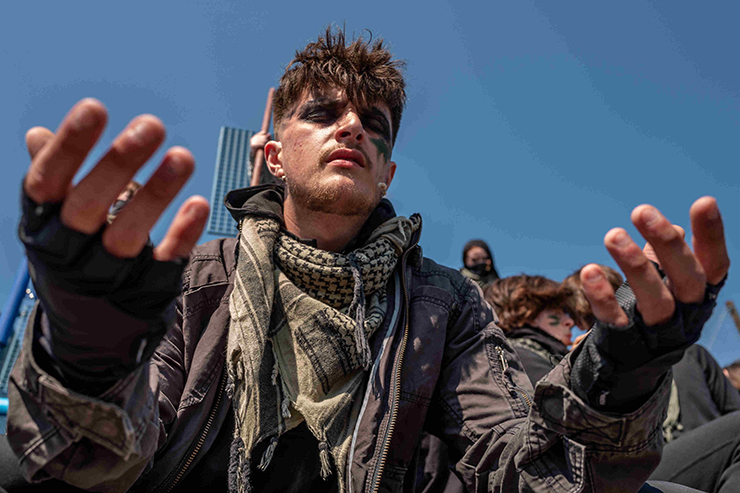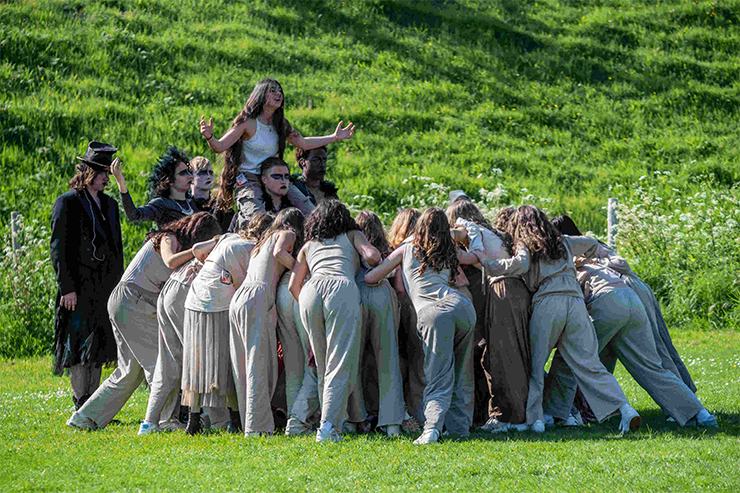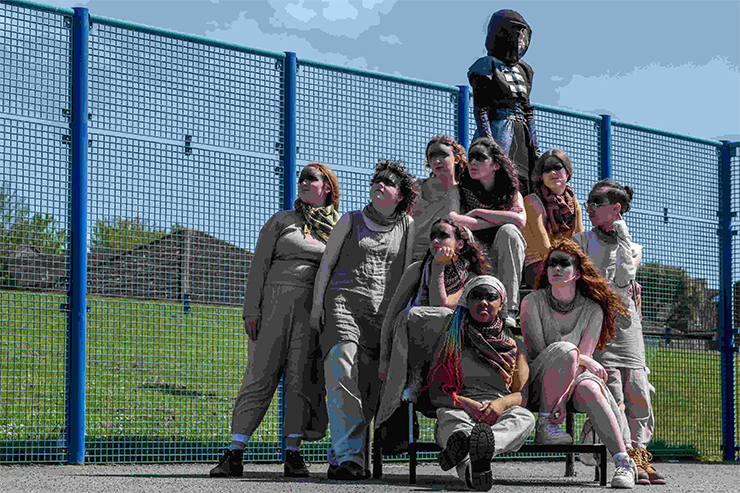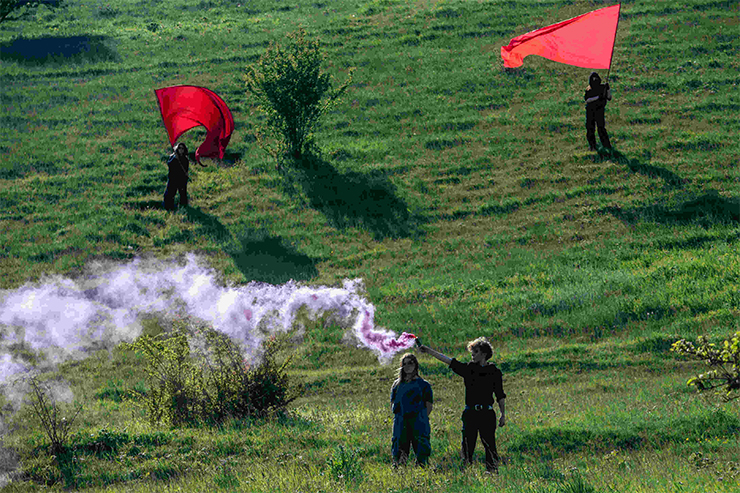It was a massive achievement to conjure up a modern version of the drama ‘Bakkhai’ in the Brighton Festival this year. At first sight, a play written by Euripides – the Greek dramatist who died in 406 BC – might not set hearts throbbing in this digital age.
Nevertheless the creative team for this play successfully worked in local communities with people – from early teens to late retirement – to co-create a highly relevant version for our times.
Originally, Dionysus was the god of wine, festivity and fertility in Greek mythology. He was associated with the bacchants – a community of free women keen on dancing and festivity thought to induce a mind state of ‘bacchae’ – but he was also a trickster.
In this adaption, Pentheus has taken the corporate career. Meanwhile his sister, Agave, has abandoned the rich and privileged family life to go native with the camp rebels. They are sibling adversaries writ large.
Young people initially seek out the ancient gods for some help: water is running out fast. But the camp is split. There are now three idealistic, vibrant, strident tribes, all seeking to challenge the existing system.
The performance started in a youth club next door to a basketball court surrounded by high wire fencing. This subtly doubled up as a zone of imprisonment where the audience was, literally, captive. Young people began presenting ideas for a better and more just future. Meanwhile, the rich – dressed appropriately in black suits, white shirts and ties – poured scorn and ridicule on these ideas from outside the cage.
This production involved encouraging and supporting young people living in or near the Whitehawk estate (on the east side of Brighton) to raise contemporary issues. During rehearsals, there was a high degree of debate, contestation and co-creation in the construction and performance of this play. Hence themes such as poverty, climate change, migrants, human rights and governance were brought into the forum for discussion with other protagonists in the drama.
The pace intensified as the performance came to a climax within, and between the tribes. The Athenian (warriors), led by Jay (Vito Taskin) contrasted Greek drama with youth-devised speech by Tommy (Sonny Attwood).
The Appollonians (thinkers) with Wren Atree-Pope and Luke Johnston drew on a dramatic dance climax. Meanwhile, the Bacchans (ever-ecstatic and hedonist) were led by Dionysis, played by Tegwin Edwards in appropriate post-punk costume. Meanwhile, the Ceydr Tanc dance group raised a suitably Bacchant crescendo as Pentheus (Alex Watson) faced his bloody end.
This performance was a labour-intensive activity in a collaboration between Brighton People’s Theatre, Ceyda Tanc Dance and Third Space (formerly Windmill Young Actors). It involved a cast of 60 people and a creative team of 40 people – aged 8 to 60 – engaged in: writing, costumes, lights, sound, stage management and choreography. Artistic director Tanushka Marah was supported by Nicola Chambers and Zoë Alexander (assistant directors), Sophia Trewick (lead writer), Angela El-Zeind (costume designer) and more.
“We speak to you from the future,” says one of the protagonists. Almost as soon as this was said, an ominous pale blue cloud passed over the playground. The sea fog blew in and visibility dropped to a spooky 200 metres. How did the director, Tanushka Marah of Third Space Theatre, organise that?
For the finale, the audience were led out of the compound towards the hill. There were red flares, uncanny faces, voices from half way up the chalk cliff. This was an epic production, a fantastic spectacle, and an extraordinary dramatic achievement.
Photos by Andrew Hasson




